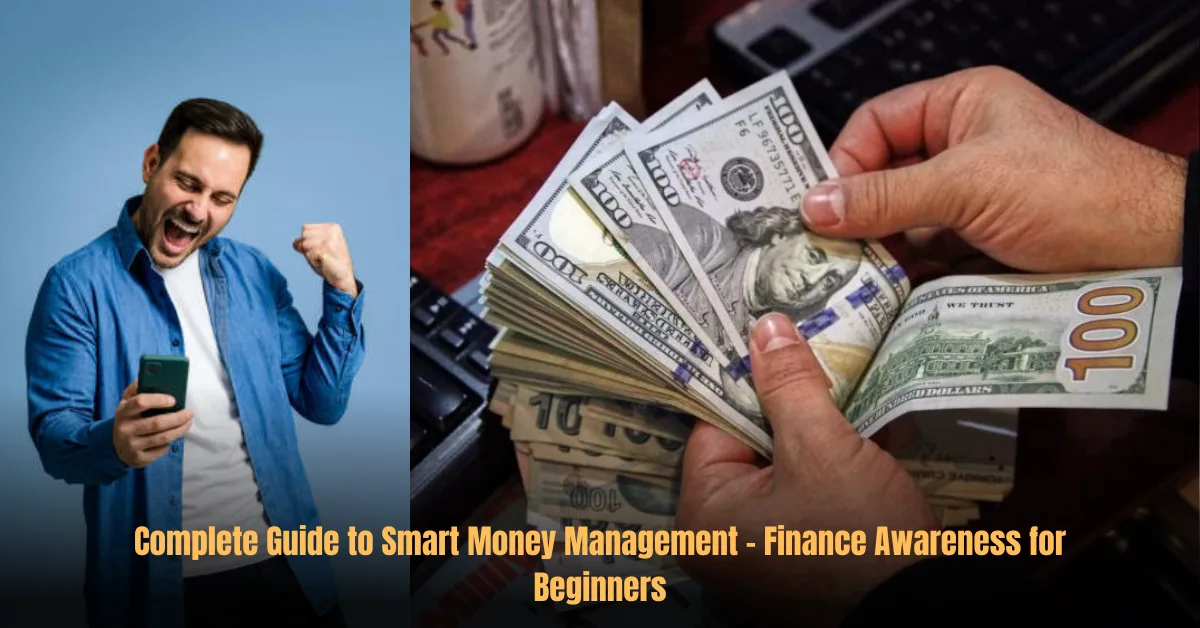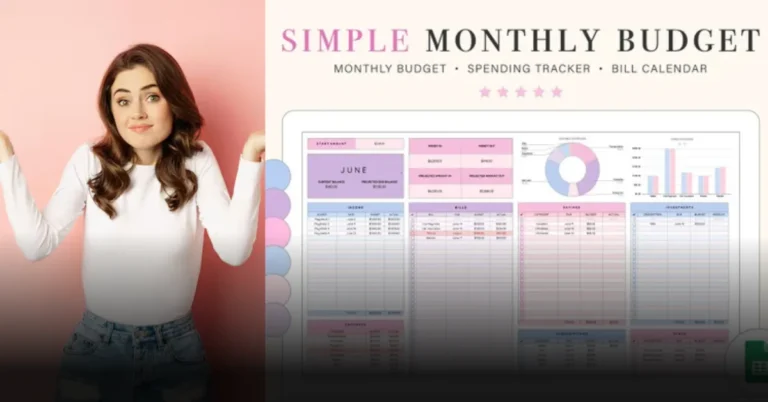Complete Guide to Smart Money Management – Finance Awareness for Beginners
Do you sometimes ask yourself, “Where did my money go?” Do you feel worried or confused when you try to save or invest your money? You are not alone. Many people feel like this. Most of us never learned how to take care of our money. We spend it, but we do not know how or why it goes away so fast. Good money habits are not only for rich people. They are for everyone Even if you do not earn much, you can still use your money in a smart way. It is not about how much you make. It is about how you plan and how you spend. This small guide will help you understand money step by step. You will learn how to make a budget.
You will learn how to control your spending. You will learn how to save for the future. You will also get simple tips to stay out of debt and grow your savings. When you learn to manage your money, you will feel calm and happy. Money is not magic. It is just a tool. If you use it well, you can build a better and safer life.
Establishing Financial Awareness: The Core of Money Management
The first step is to know where your money goes. You must understand how much you earn and how much you spend. This is called financial awareness. It helps you make better choices with your money.
The Essential Step: Tracking Your Expenses
Before you make a plan, you must know what you spend. Write down every single thing you buy for one month. You can use a notebook, your phone, or a simple app. After 30 days, look at your list. You will see where your money goes every day. This is the first and most important step.
Tip: Find the small things that take your money. These are called “money drains.” They can be things like coffee, snacks, or app subscriptions. They look small, but they cost a lot over time.
Creating a Spending Plan: Budgeting for Beginners
After you know your spending, make a simple plan. This plan is called a budget. A budget helps you use your money better. It is not to stop fun, but to help you reach your goals.
You can use the 50/30/20 rule:
- 50% for Needs: This is for rent, food, transport, and bills.
- 30% for Wants: This is for fun, hobbies, and travel.
- 20% for Savings and Debt: This is for saving money and paying off loans.
This rule is easy to follow. It helps you enjoy life and still save for the future.
Mastering Debt and Credit: Your Financial Responsibility
Debt and credit are part of life. If you use them in the right way, they can help you. If you use them in the wrong way, they can hurt you.
Smart Debt Management and Reduction
Not all debt is bad. Some debt helps you grow. But some debt takes away your money.
- Good Debt: This helps you build something useful, like a home loan or a student loan.
- Bad Debt: This has high interest, like credit card debt or payday loans.
If you already have debt, make a plan to pay it off. Start with the debt that has the highest interest rate first. This saves you more money over time. This method is called the debt avalanche.
Action Step: When you save money by cutting costs, use that money to pay your debt faster.
Credit Score Basics: Building Credit Wisely
Your credit score shows how good you are with money. A good credit score helps you get better loans and lower interest rates.
Your credit score depends on:
- Paying your bills on time.
- The amount of money you owe.
- How long you have had credit.
Tip: Always pay your credit card bill in full each month. Do not carry a balance. This saves you from paying extra interest. It also shows that you are responsible with money.
Investing and Saving: Strategies to Grow Wealth
Saving helps you stay safe. Investing helps your money grow. Both are important if you want to build wealth.
Prioritizing Savings Goals: The Emergency Fund
Before you start investing, you need an emergency fund. This is money you keep for hard times — like losing your job or getting sick. Your emergency fund should have 3 to 6 months of living costs. This fund helps you stay calm during problems. You will not need to borrow money when something bad happens.
Getting Started with Beginner Investing
After you have your emergency fund, start investing. You do not need a lot of money to begin. Even small amounts grow with time because of compound interest. Compound interest means your money earns interest, and then that interest also earns more interest.
Start with simple investments, such as:
- Index funds
- ETFs (Exchange-Traded Funds)
These are safe for beginners because they spread risk across many companies.
Action Step: If your employer offers a retirement plan like a 401(k), join it. Add enough money to get the full company match. This is free money that helps your savings grow.
Fact: The S&P 500 has earned around 10% return each year in the long term. If you start early, your money can grow a lot over time.
Also Read: Complete Guide to Smart Money Management – Finance Awareness for Beginners
Advanced Money Management Tips for Sustained Success
When you understand the basics, you can do more to keep your money safe and growing.
Automate Everything
Automation means doing things automatically. This makes saving and paying bills easy. You can set your bank to do this every month:
- Savings: Move money to your savings account right after you get paid.
- Investments: Send money to your investment or retirement account.
- Bills: Pay your bills automatically so you never miss a payment.
This helps you save time and avoid stress. It also helps you reach your goals without forgetting.
Continuous Financial Education
Learning about money never ends. The more you learn, the better choices you make.
You can keep learning by:
- Reading simple books about money.
- Watching easy finance videos online.
- Following trusted money websites or blogs.
Learning a little bit each month can make a big difference. Good knowledge helps you stay safe and grow your money.
Conclusion: Take Control of Your Financial Future
This guide gives you the simple steps for smart money management. Now you know how to track, plan, save, and invest.
Remember, success with money is not about luck. It is about small, smart actions every day.
Start today:
- Track your expenses.
- Make a simple budget.
- Save for emergencies.
- Pay your debts.
- Start investing.
Every small step moves you closer to financial freedom. You can do it. Start today and take control of your money.
What step will you start first?
Share your answer in the comments and subscribe to our newsletter for more simple and useful money tips.






